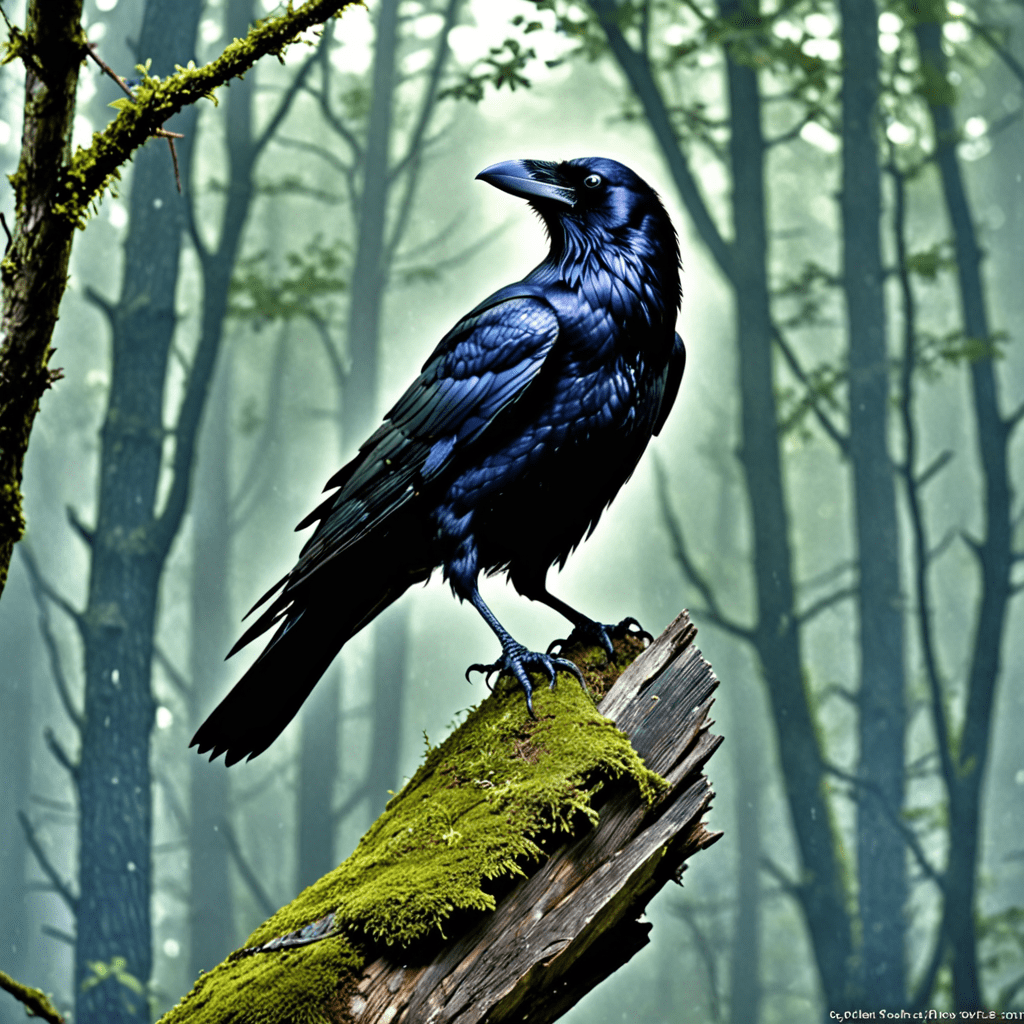The Symbolism of the Raven in Norse Mythology
In Norse mythology, animals held significant symbolic meanings, and the raven was one of the most prominent and mysterious creatures. Let’s delve into the rich symbolism of the raven in Norse mythology and understand its importance.
1. Odin’s Companions: The Ravens Hugin and Munin
Ravens were closely associated with Odin, the chief god in Norse mythology. Odin was accompanied by two ravens named Hugin and Munin, who represented thought and memory, respectively. These wise birds would fly over the world and bring information back to Odin, reinforcing their role as symbols of wisdom and intelligence.
2. Messengers of Fate and Battle
According to Norse mythology, ravens were believed to carry messages between the human realm and the realm of the gods. They were also associated with war and battle, symbolizing Odin’s connection to warfare and foretelling the outcomes of conflicts. Seeing a raven on the battlefield was considered an omen of either victory or defeat, influencing the warriors’ morale.
3. Symbol of the Otherworld and Wisdom
In Norse culture, the raven was often seen as a mystical and magical creature, with a deep connection to the spirit world. Ravens were thought to have an understanding of both life and death, symbolizing transformation and rebirth. Their presence was linked to the intuitive wisdom that could guide individuals through challenging circumstances.
4. The End of Days: The Role of the Raven in Ragnarök
Ravens played a significant role in the Norse apocalyptic event known as Ragnarök. In this final battle, ravens served as ominous announcers of the upcoming chaos and destruction. Their presence during Ragnarök signified the culmination of fate and the end of the current world order, emphasizing the cyclical nature of existence in Norse mythology.
In conclusion, the raven in Norse mythology symbolized various aspects ranging from wisdom and intelligence to war and fate. Their multifaceted significance highlights the complexity and depth of symbolism attached to these enigmatic birds in the mythological belief system of the Norse culture.
FAQs about the Symbolism of the Raven in Norse Mythology
What does the raven symbolize in Norse mythology?
In Norse mythology, the raven symbolizes wisdom, knowledge, and insight. It is also associated with Odin, the Allfather, who had two ravens named Huginn and Muninn, representing thought and memory.
What role did ravens play in Norse mythology?
Ravens were believed to be messengers of the gods, carrying information between the earthly realm and the divine. They were also seen as symbols of protection and guidance for warriors and heroes.
How did ravens connect to Odin in Norse mythology?
Odin, the chief god in Norse mythology, had a strong connection to ravens. Huginn and Muninn, his two faithful ravens, would fly across the world each day and bring news and information back to Odin, enhancing his wisdom and knowledge.
Are there any other significant myths involving ravens in Norse mythology?
One prominent myth involves the god Loki shape-shifting into a raven to bring news to Odin about the affairs of the world. This showcases the intelligence and cunning nature often attributed to ravens in Norse folklore.
How do ravens continue to be symbolized in modern culture?
In modern times, ravens still carry a sense of mystery, intelligence





